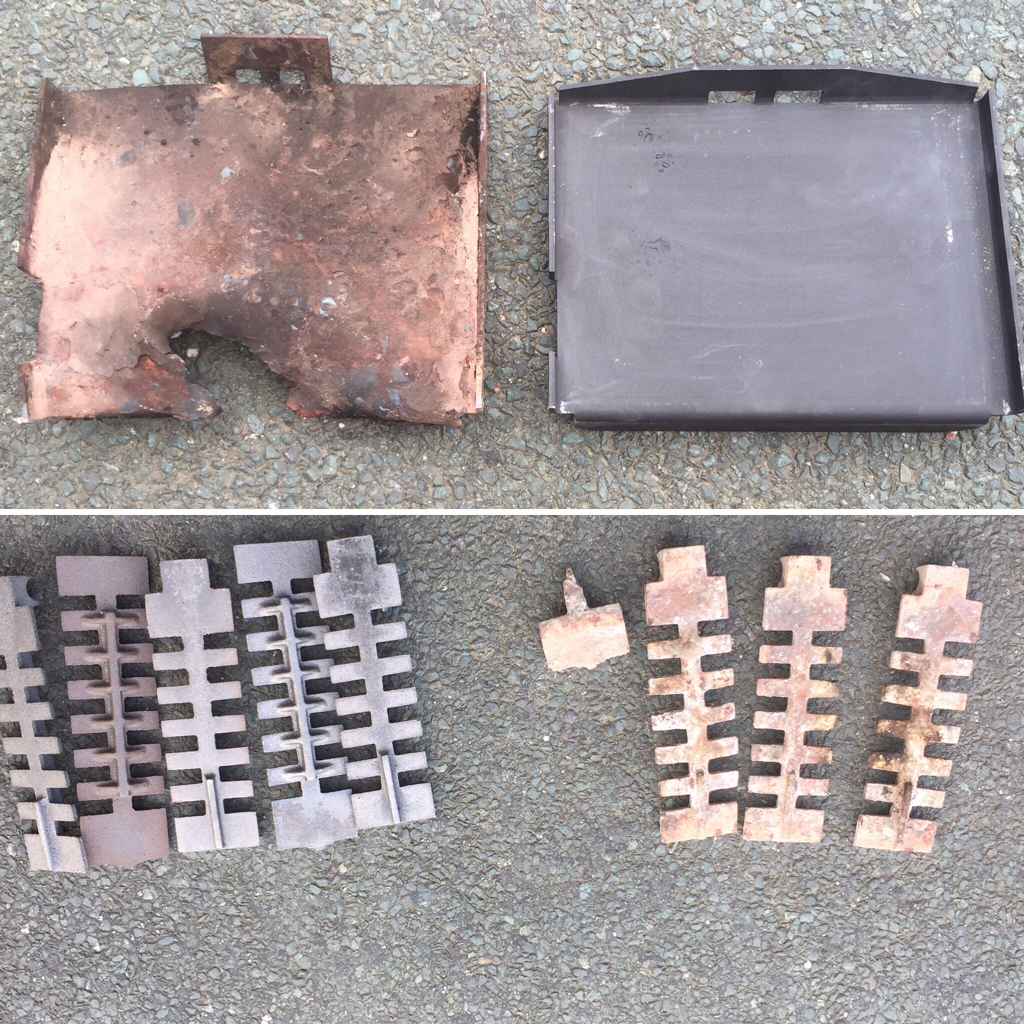I've seen a few new customers this week using household coal in their stoves completely unaware of the damage they are causing to the appliance.
When coal is added to the appliance it has a delayed burn, and does not immediately start to burn. However, what it does is release large quantities of thick highly volatile yellowish-grey smoke, which fills up the chimney flue.
This is extremely dangerous. When the smoke reaches a high temperature it can cause an explosive flash. The force of the blast can blow out the stove glass or even blow open the doors of your stove.
If you have burnt household coal before but have not suffered an explosive flash, you will still damage the inside of your stove. The volatile smoke released by the coal can still catch fire and can burn for up to 30 minutes. This can result in a twisted baffle plate, warped grates, damaged liners.
For this reason, household coal should only be used on open fires, and providing you're not in a smoke free area.
When coal is added to the appliance it has a delayed burn, and does not immediately start to burn. However, what it does is release large quantities of thick highly volatile yellowish-grey smoke, which fills up the chimney flue.
This is extremely dangerous. When the smoke reaches a high temperature it can cause an explosive flash. The force of the blast can blow out the stove glass or even blow open the doors of your stove.
If you have burnt household coal before but have not suffered an explosive flash, you will still damage the inside of your stove. The volatile smoke released by the coal can still catch fire and can burn for up to 30 minutes. This can result in a twisted baffle plate, warped grates, damaged liners.
For this reason, household coal should only be used on open fires, and providing you're not in a smoke free area.


